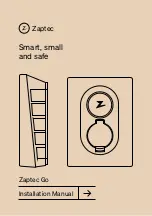
4-4
DRIVING TIPS
78KS0-37E
Improving Fuel Economy
The following instructions will help you
improve fuel economy.
Avoid excessive idling
If you are to wait for more than a minute
while you are parked, stop the engine and
start it again later. When warming up a
cold engine, allow the engine to idle until
the temperature gauge pointer comes up
to the “C” position (if the idling is not pro-
hibited). In this position, the engine is suffi-
ciently warm for starting off.
Avoid “fast” starts
Fast starts away from lights or stop signs
will consume fuel unnecessarily and
shorten engine life. Start off slowly.
Avoid unnecessary stops
Avoid unnecessary deceleration and stop-
ping. Try to maintain a slow, steady speed
whenever possible. Slowing down and then
accelerating again uses more fuel.
Keep a steady cruising speed
Keep as constant a speed as road and traf-
fic conditions will permit.
Keep the air cleaner clean
60A183S
A dirty air cleaner will cause the carbure-
tion system to supply too much fuel to the
engine for the amount of air being sup-
plied. The result is waste of fuel due to
incomplete combustion.
Keep weight to a minimum
The heavier the load, the more fuel the
vehicle consumes. Take out any luggage
or cargo when it is not necessary.
Keep tire pressures correct
Underinflation of the tires can waste fuel
due to increased running resistance of the
tires. Keep your tires inflated to the correct
pressure shown on the label on the driver’s
side door or the driver’s door lock pillar.
On-Paved Road Driving
The data of accidents show that most roll-
over accidents for multi-purpose vehicles
are caused when a driver loses control of
the vehicle and leaves the paved portion of
the roadway striking a ditch, curb or other
off-road object that causes the vehicle to
overturn. The following driving practices
may reduce the risk of rollover.
Vehicle Slides Off-Road
You can reduce the risk of this kind of roll-
over accident by always keeping the vehi-
cle under control. Typically, drivers lose
control of vehicles, often resulting in roll-
over accidents, when the driver is impaired
because of alcohol or other drugs, falls
asleep at the wheel or is otherwise inatten-
tive, or is driving too fast for the road condi-
tions.
Rollovers On the Roadway
If, for any reason, your vehicle slides side-
ways or spins out of control at highway
speeds, while on the paved portion of the
roadway, the risk of rollover is greatly
increased. This condition can be created
when two or more wheels drop off onto the
shoulder and you steer sharply in an
attempt to reenter the roadway. To reduce
the risk of rollover in these circumstances,
if conditions permit, you should hold the
steering wheel firmly and slow down
before pulling back into the travel lanes
with controlled steering movements.
EXAMPLE
On-Paved Road Driving: NO
Off-Road Driving: NO
Summary of Contents for GRAND VITARA 2008
Page 8: ...78KS0 37E MEMO...
Page 14: ...ILLUSTRATED TABLE OF CONTENTS 78KS0 37E MEMO...
Page 15: ...FUEL RECOMMENDATION 1 78KS0 37E 65D394 FUEL RECOMMENDATION Fuel Recommendation 1 1...
Page 18: ...1 3 FUEL RECOMMENDATION 78KS0 37E MEMO...
Page 90: ...2 71 BEFORE DRIVING 78KS0 37E MEMO...
Page 130: ...3 39 OPERATING YOUR VEHICLE 78KS0 37E MEMO...
Page 140: ...4 9 DRIVING TIPS 78KS0 37E MEMO...
Page 210: ...5 69 OTHER CONTROLS AND EQUIPMENT 78KS0 37E MEMO...
Page 222: ...6 11 VEHICLE LOADING AND TOWING 78KS0 37E MEMO...
Page 286: ...9 5 APPEARANCE CARE 78KS0 37E MEMO...
Page 287: ...GENERAL INFORMATION 10 78KS0 37E 54G072 GENERAL INFORMATION Vehicle Identification 10 1...
Page 300: ...12 6 INDEX 78KS0 37E MEMO...
Page 301: ...78KS0 37E...
Page 302: ...78KS0 37E...
Page 308: ...78KS0 37E MEMO...
















































